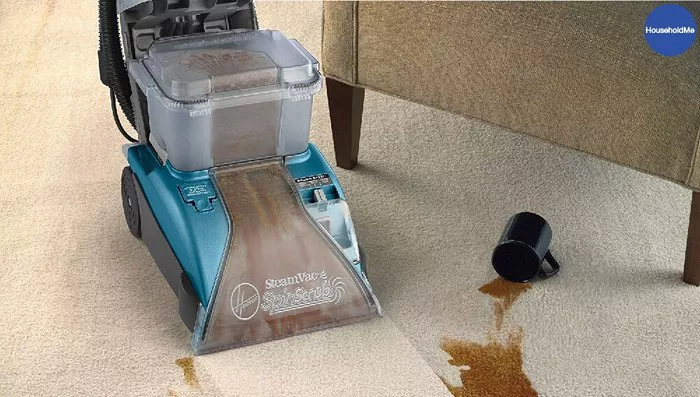Carpet sweepers have long been valued tools in the realm of cleaning. Their simplicity and effectiveness make them a popular choice for both residential and commercial settings. If you’re considering investing in a carpet sweeper, this guide will provide you with all the essential information you need to make an informed decision.
Understanding the Carpet Sweeper
A carpet sweeper is a manual cleaning device designed to swiftly clean various types of flooring, including carpets, rugs, and hardwood floors. Unlike traditional vacuum cleaners, carpet sweepers operate without electricity or batteries, relying instead on mechanical movement to gather debris into a dustpan or collection container.
Types of Carpet Sweepers
Carpet sweepers come in several types, each catering to different cleaning needs:
Manual Carpet Sweepers: These are the most common type, operated by pushing the sweeper across the floor. They are lightweight and maneuverable, making them ideal for quick touch-ups and smaller spaces.
Electric Carpet Sweepers: Powered by rechargeable batteries, electric carpet sweepers offer enhanced cleaning capabilities compared to manual models. They often feature rotating brushes or rollers to lift dirt and debris effectively.
Commercial Carpet Sweepers: Designed for heavy-duty use in commercial environments such as offices, hotels, and retail spaces, these sweepers are built to handle frequent and extensive cleaning tasks.
Benefits of Using a Carpet Sweeper
The advantages of using a carpet sweeper extend beyond mere convenience:
Quiet Operation: Unlike vacuum cleaners, carpet sweepers operate quietly, making them suitable for use in noise-sensitive environments or during quiet hours.
Portability: Most carpet sweepers are lightweight and compact, allowing for easy storage and transportation between different areas of a building or home.
Environmental Friendliness: Since carpet sweepers do not require electricity or produce emissions, they are environmentally friendly cleaning options.
Cost-Effectiveness: With minimal maintenance requirements and no need for disposable bags or filters, carpet sweepers can be more cost-effective over time compared to vacuum cleaners.
Factors to Consider When Choosing a Carpet Sweeper
Before purchasing a carpet sweeper, it’s important to consider several key factors:
Flooring Type: Determine whether the sweeper is suitable for the type of flooring you have, such as low-pile carpets, rugs, or hardwood floors.
Cleaning Needs: Assess your cleaning needs, including the size of the area to be cleaned and the frequency of cleaning required.
Features: Consider features such as adjustable height settings, brush types, dustpan capacity, and maneuverability.
Durability: Look for a carpet sweeper made from durable materials that can withstand frequent use.
Brand Reputation: Research reputable brands known for producing high-quality carpet sweepers with reliable performance and customer support.
See Also: Do Carpet Sweepers Really Work?
How Much Does a Carpet Sweeper Cost?
The cost of a carpet sweeper can vary widely depending on several factors:
Manual Carpet Sweepers: Basic manual carpet sweepers typically range from $20 to $50. These models are suitable for light cleaning tasks and smaller spaces.
Electric Carpet Sweepers: Prices for electric carpet sweepers start around $50 and can go up to $200 or more for advanced models with additional features such as rechargeable batteries and motorized brushes.
Commercial Carpet Sweepers: Heavy-duty commercial carpet sweepers designed for professional use can range from $100 to $500 or more, depending on their size and capabilities.
Choosing the Right Carpet Sweeper for Your Needs
To choose the right carpet sweeper, consider the following guidelines:
Budget: Determine your budget and select a carpet sweeper that offers the best balance of features and affordability within your price range.
Performance: Read reviews and product specifications to assess the sweeper’s cleaning performance, durability, and ease of use.
Warranty: Check the manufacturer’s warranty to ensure coverage for potential repairs or replacements.
User Feedback: Take into account user feedback and ratings to gauge overall satisfaction with the product.
Maintenance and Care Tips
Proper maintenance will prolong the life and effectiveness of your carpet sweeper:
Empty the Dustpan: Regularly empty the dustpan or collection container to prevent clogging and maintain suction efficiency.
Clean the Brushes: Remove hair, lint, and debris from the brushes or rollers to prevent them from becoming tangled or ineffective.
Inspect for Wear and Tear: Periodically inspect the sweeper for any signs of wear and tear, such as frayed brushes or loose components, and replace them as needed.
Store Properly: Store the carpet sweeper in a clean, dry place to prevent dust buildup and damage to the mechanisms.
Conclusion
In conclusion, a carpet sweeper is a valuable cleaning tool that offers simplicity, efficiency, and versatility. Whether you choose a manual, electric, or commercial model, selecting the right carpet sweeper involves considering factors such as your cleaning needs, budget, and desired features. By understanding the benefits, costs, and maintenance requirements of carpet sweepers, you can make an informed decision to enhance your cleaning routine and maintain the cleanliness of your home or business effectively.

